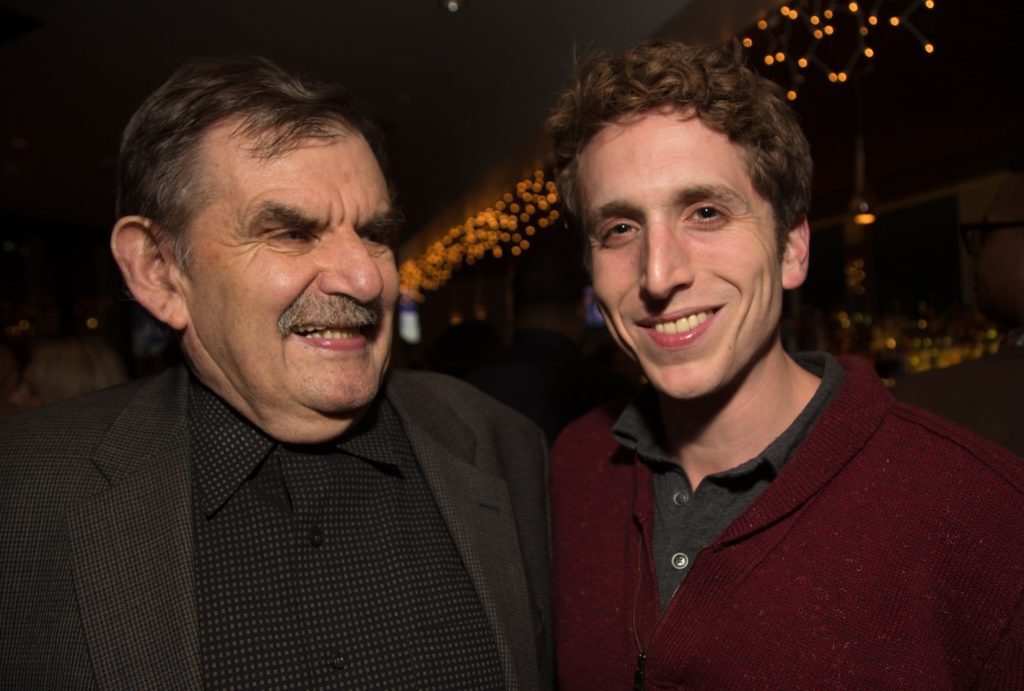An Appreciation: Gary Tischler Was Our Best
By • April 9, 2020 0 1279

Gary Tischler was an encyclopedia of all that makes life worth living. Art, theater, movies, literature, music, baseball, opera — there was no end to his knowledge and appreciation of the cultural ether.
As a writer, he taught me how to write with your heart, not your head. He browbeat me for using gratuitously fancy words. (He once asked me point-blank to stop using “bucolic” so much.) He taught me that sometimes you need to stop thinking and write about what you saw. He also taught me how to look coolly down the barrel of a deadline, and that a word limit was merely an editorial suggestion.
As a friend and a mentor, Gary gave me more wispy little granules of heartfelt guidance than I’ll ever be able to recount. But the one that is always with me — though he never said this so much as showed me through seasons of endless conversation — is to just flat-out love what you do. He taught me that it’s a rare few who get to write and think about art for a living, so if you’re going to do it, do it with gratitude, awe and love.
He taught me how to edit. I had the glorious challenge of being Gary’s editor, as managing editor of The Georgetowner from 2010 to 2012. At least once a week, I received a brain-dump from Gary: theater reviews and think pieces consisting of 200-word, single-sentence paragraphs, stuffed with more ideas throughout their labyrinths of inner clauses than most writers have within the body of an entire piece. But I always knew that if I took the time to untangle his words — and he absolutely expected me to untangle them — there were small diamonds overflowing from the debris.
I met Gary when I was fresh out of college with an art degree. I had no right being his editor. He had been a journalist longer than I’d been alive. But he treated me like a comrade. He called me to talk about his articles before submitting, about the show he saw the night before, about the exhibition opening we should meet at (the National Gallery’s were the best: free breakfast and a big fat catalog). He let me feel like I knew what I was doing.
It annoyed him when I inserted disclaimers of my own ignorance into my art pieces (I often sent him my drafts). “It’s your column,” he would say. “It doesn’t matter what you don’t know. You’re the art critic. This is your job.”
To that end, Gary was a rare and dwindling breed of writer. He was an old-school newspaperman, cut from cloth that they just don’t make like they used’ta. He was a lot like many of the artists of his generation that he admired — John Prine, Kris Kristofferson, Harvey Keitel — a blue-collar, hard-drinking fella who fell into the arts amid the course of a deeply lived and imperfect life. Because of this, he saw a work of art from the inside out. He filtered art through life, not the other way around.
By the time I met Gary, his days of drinking and carousing were behind him, but meeting him for coffee and a blueberry crumble on a Thursday morning at Tryst was as invigorating, hilarious and action-packed as a few rounds at Nathans.
Gary didn’t talk; he held court. As his editor, I was on the phone with him for hours every day. He spoke like he wrote — endlessly, and about everything.
His style was not a natural fit for the culturati. And that always made him my favorite person in the room. That’s also what made him so damn good at what he did.
Gary never wrote an inauthentic word in his life. It was honest, deeply considered, fresh and real. He didn’t belabor turns of phrase, sentence structure or authorial panache. He just wrote it down as it came to him and rollicked along to his next irrepressible thought.
I envied his easy prose, his casually exacting observations and his colloquial style. He wrote about Bryce Harper the same way he wrote about Puccini.
Most people “of a certain age” have a few stories they tell over and over. I don’t think I ever heard the same thing come out of Gary’s mouth twice — unless I asked him to “tell me again about that time at the Kennedy Center when you interviewed a raging drunk Mickey Rooney an hour before he went onstage.”
The only story I remember him retelling was about a conversation he once had with his son, upon the birth of Gary’s grandson. Gary may not have been the best father while he was growing up, his son told him, but he turned out to be the best friend he ever had.
Gary was the sweetest guy I ever met, and my favorite person to talk movies, books, coffee and art with. He’d read everything, by the way.
He taught me how to laugh at art. He once got scolded at the opening of a Dubuffet exhibition at the National Gallery for laughing — loudly — at a painting of a cow. “But look at it!” Gary protested. “It’s funny!”
“I suppose,” grumbled the well-dressed man. “But it shouldn’t be.” I later found out that the man was the curator.
Gary made me laugh with my whole body. I hear his voice every time I sit down to write.
I’ll miss Gary profoundly, and I’m grateful for every moment we had.

